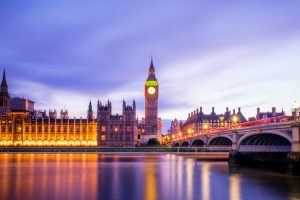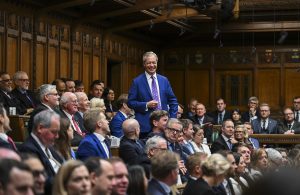As Parliament approaches Summer Recess, Ministers from the Department for Energy Security and Net Zero faced their final Oral Questions on Tuesday 15 July. Three core issues dominated the session: high energy costs, infrastructure investment, and public confidence in net zero delivery. Below, Brevia Energy examines the questions raised in the context of recent policy developments and the outlook ahead.
1. Energy Costs
MPs continued to press Ministers from the Department for Net Zero and Energy Security on the impact of soaring energy bills on both households and businesses. The discussion came in the wake of the Government’s recent decision to rule out a move to zonal pricing as part of the Review of Electricity Market Arrangements (REMA), instead opting for a reformed national pricing model.[1] In response to pressure from MPs on immediate relief to reduce energy bills, Ministers pointed to measures such as the £13.2 billion investment in the Warm Homes Plan, the Warm Homes Discount, and Winter Fuel Payments.[2]
Ministers were also questioned on how the Government is addressing high industrial energy costs. The recently published Modern Industrial Strategy announced a new British Industrial Competitiveness Scheme, which aims to stimulate investment and protect domestic manufacturing, and is set to reduce industrial energy costs from 2027.[3] Minister for Consumers Miatta Fahnbulleh MP reaffirmed the Government’s priority to safeguard jobs and strengthen UK-based supply chains. However, questions persist around how these objectives will be delivered in practice, including how the Government will balance affordability, industrial competitiveness, and a secure, accelerated energy transition.
2. Investment in Infrastructure
Ministers leaned heavily on infrastructure as the answer to address rising energy costs and resilience. Energy Secretary Ed Miliband MP highlighted the Government’s investment in the Sizewell C nuclear power project. This same week, the Energy Security and Net Zero Committee launched a consultation on whether the National Policy Statement for Nuclear Energy Generation is adequate to support the UK’s nuclear energy ambitions. In parallel, reports suggest that the Government is considering including fusion power plants within the national infrastructure planning regime, bypassing the requirement for local authority consent. Such a decision would align nuclear planning more closely with that of solar and wind farms, advancing the Government’s goal of expanding ‘homegrown clean energy’. Looking ahead, Ministers pointed to the forthcoming Strategic Spatial Energy plan, expected from the National Energy System Operator in 2026, as a key part of its Clean Power 2030 strategy. The plan is expected to provide long-term guidance on the optimal siting of wind, solar, and grid assets, reduce connection bottlenecks, and enable more balanced network development.[4] Nonetheless, as MPs noted, the Government cannot afford to simply override opposition to the rollout of clean power infrastructure; and must ensure public support for the net zero transition.
3. Public Confidence in Net Zero Delivery
MPs also questioned Ministers on public trust in the Government’s net zero agenda and it being backed by scientific evidence – a topic currently under scrutiny by the Energy Security and Net Zero Committee.[5] The discussion came just after Ed Miliband tabled an Urgent Question session in the Commons on Monday in response to a new Met Office report on the impact of climate change on UK weather patterns.[6] While Ministers assert that policy remains evidence-led, recent decisions, such as shelving zonal pricing under REMA and making the Winter Fuel Payments available to more pensioners, suggest a more cautious political calculus, particularly amid rising polling numbers for Reform UK.[7] Ministers face the challenge of reconciling long-term climate goals with short-term political pressures without undermining the delivery momentum of key technologies, such as heat pumps and EVs. Minister Fahnbulleh MP referred to the upcoming Public Participation Strategy that will be published later this year, which is expected to set out how the Government will support consumers in adopting new technologies while ensuring that the public is consulted effectively on policy.[8]
Takeaway
This final Oral Questions session revealed a Government attempting to balance competing pressures: affordability, security, and decarbonisation. With major policy decisions and delivery milestones ahead, stakeholders across the energy sector should watch closely as the political and regulatory landscape continues to evolve.
Brevia Energy is a dedicated division of Brevia Consulting, and has a longstanding reputation for its expertise and experience in the Energy Sector.
To organise a discussion with Brevia Energy on how we can help you and your organisation, please get in touch via the link here. You can also contact the Brevia Energy Team on 020 7091 1650 or email contact@brevia.co.uk
[1] Department for Energy Security and Net Zero, Review of electricity market arrangements (REMA), 10 July 2025, Link.
[2] HM Treasury, Spending Review 2025, 11 June 2025, Link.
[3] UK Government, Industrial Strategy, 23 June 2025, Link.
[4] Department for Energy Security and Net Zero, Strategic plan for long-term energy infrastructure, 22 October 2024, Link.
[5] Energy Security and Net Zero Committee, Building support for the energy transition – Oral evidence, 2 July 2025, Link.
[6] Ed Miliband, State of Climate and Nature, 14 July 2025, Link.
[7] YouGov, First YouGov MRP since 2024 election shows a hung parliament with Reform UK as largest party, 26 June 2025, Link.
[8] Department for Energy Security and Net Zero, Accelerating to Net Zero: responding to the CCC progress report and delivering the Clean Energy Superpower Mission, 17 December 2024, Link.



